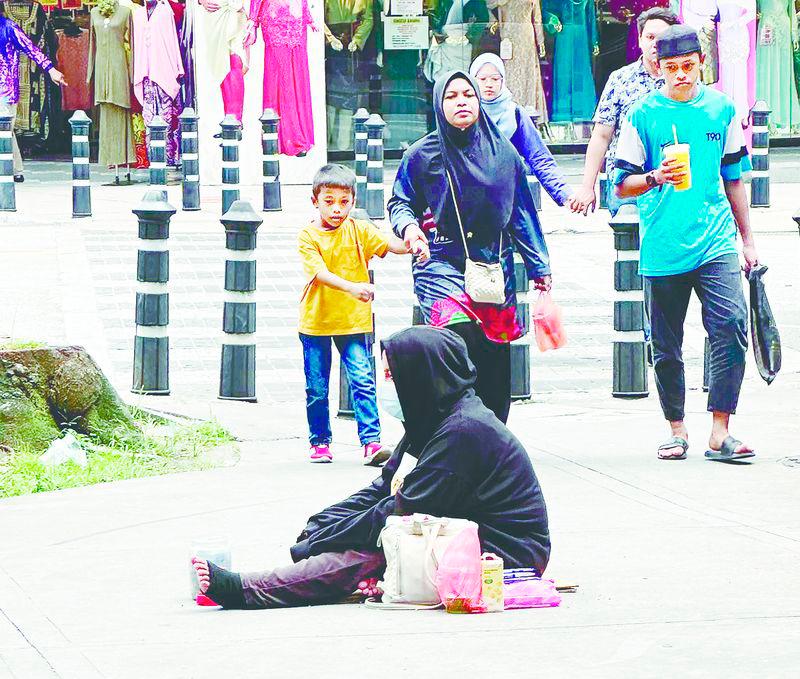PETALING JAYA: The number of foreign beggars in the country is increasing.
Prominent sociologist Datuk Dr Mohammad Shatar Sabran said these foreign beggars are usually part of a syndicate that preys on the generosity of Malaysians.
“Some may also be victims of human trafficking after having been misled and brought into the country with false promises.
“Children are also used as part of the modus operandi to gain public sympathy as they beg, so the public should report them to the authorities and not encourage their activities by giving them money,” he said, adding that so long as Malaysians give them money, the begging will continue.
However, Mohammad Shatar said relying on authorities alone to take enforcement action is insufficient as begging by foreign nationals has become a serious social problem that needs collaboration from police, immigration and welfare departments among others, to resolve.
Social Welfare Department director-general Norazman Othman told theSun that a total of 2,526 operations were conducted nationwide in the last five years to remove beggars from the streets.
He said in Kuala Lumpur alone, the department carried out specific raids on foreign beggars from June 2022 until June this year and removed more than 800 of them.
“However despite this, foreign beggars continue to arrive in the country to beg for money as part of a syndicate. It is very profitable to beg in Malaysia as people are generous, but the money goes to the syndicate that uses these people.
“As long as the giving does not stop, the number of foreign beggars in the country will just keep increasing,” he said, adding that Kuala Lumpur has recorded the highest number of beggars compared with other states.
He said based on his questioning, the foreign beggars were mainly from Myanmar, followed by Pakistan and Cambodia, while smaller numbers came from Bangladesh, China, the Philippines, India, Indonesia, Thailand and Vietnam.
“During the raids, we encountered about 100 foreign beggars who had no documentation and refused to divulge their country of origin. So, it becomes difficult to deport them,” he said.
He added that foreign beggars in Kuala Lumpur are either illegal immigrants with no valid travel documents, UN High Commissioner for Refugees cardholders or those without a passport to prove their citizenship of any country.
He said those without proof of citizenship will be referred to the authorities such as the Immigration Department, police, National Registration Department and National Security Council.
“The activities of foreign beggars are also affecting the country’s reputation as their images on the streets of major cities such as Kuala Lumpur can be found on social media platforms as posted by foreign tourists.
“The department hopes that the community will fight the issue of begging by not giving donations to them so that such begging activities can be halted,” he said, adding that in terms of local beggars, the two main factors that contribute to their activities were poverty and homelessness.









